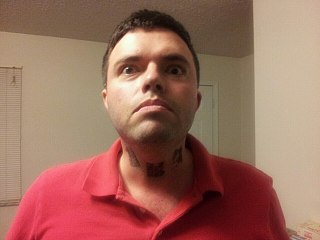A Quote by Daniel Olivas
Book critics certainly are judges who wield a tremendous amount of power in terms of whether or not a book will reach a wider audience. That's one of the reasons why I try to give coverage to books written by Latinx writers; too many worthwhile works of literature do not get the kind of coverage they deserve, and I've certainly seen that with respect to books written by writers of color. But there are some wonderful, diverse writers out there who mentor and otherwise support those voices that often have been ignored by much of the mainstream press.
Quote Topics
Amount
Audience
Been
Book
Books
Certainly
Color
Coverage
Critics
Deserve
Diverse
Get
Give
Ignored
Judges
Kind
Literature
Mainstream
Many
Mentor
Much
Often
Otherwise
Out
Power
Press
Reach
Reasons
Respect
Seen
Some
Support
Terms
Those
Too
Tremendous
Tremendous Amount
Try
Voices
Whether
Why
Wider
Wield
Will
Wonderful
Works
Worthwhile
Writers
Written
Related Quotes
Maybe just as many women writers as male writers could be billed as the next great American writer by their publisher. Maybe book criticism sections could review an equal amount of female and male writers. Maybe Oprah could start putting some books by women authors in her book club, since most of her audience is women.
You know, it's a funny thing about writers. Most people don't stop to think of books being written by people much like themselves. They think that writers are all dead long ago--they don't expect to meet them in the street or out shopping. They know their stories but not their names, and certainly not their faces. And most writers like it that way.
The people who review my books, generally, are kind of youngish culture writers who aspire to write books. When someone writes a book review, they obviously already self-identify as a writer. I mean, they are. They're writers, they're critics, and they're writing about a book about a writer who's a critic. So I think it's really hard for people to distance themselves from what they're criticizing.
If no one speaks out for [young readers], if they don’t speak out for themselves, all they’ll get for required reading will be the most bland books available. Instead of finding the information they need at the library, instead of finding novels that illuminate life, they will find only those materials to which nobody could possibly object... In this age of censorship I mourn the loss of books that will never be written, I mourn the voices that will be silenced — writers’ voices, teachers’ voices, students’ voices — and all because of fear.
First one gets works of art, then criticism of them, then criticism of the criticism, and, finally, a book on The Literary Situation , a book which tells you all about writers, critics, publishing, paperbacked books, the tendencies of the (literary) time, what sells and how much, what writers wear and drink and want, what their wives wear and drink and want, and so on.
Being goal-oriented instead of self-oriented is crucial. I know so many people who want to be writers. But let me tell you, they really don't want to be writers. They want to have been writers. They wish they had a book in print. They don't want to go through the work of getting the damn book out. There is a huge difference.
Most book things now (with a few exceptions) are just built around nice, safe books written for nice and safe book club readers. These are usually the books you see on display at Barnes and Noble. These Internet writers are like literary terrorists to me. They're training as we speak. They're getting ready to invade. They're building an army.
The fiction I've written and published is certainly inflected by the work of authors I was reading or translating at the time. One of my methods for developing my own voice in fiction, a process I am taking very slowly and deliberately, is through these very intense encounters with certain writers. Strength and power in fiction is being able to resist these intoxicating voices, recognizing that they are the signatures of other writers and not one's own.


































